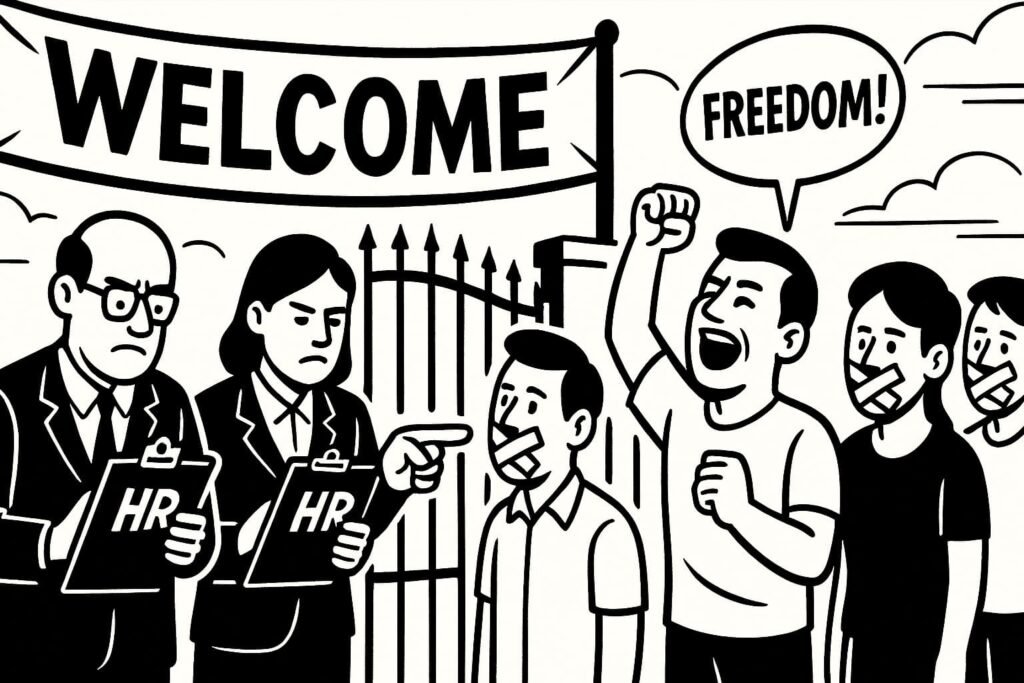Inclusion Is Censorship – Opinion
Inclusion was sold as warmth and welcome. Who could object? But in practice, “inclusion” means one thing: obey the script. From HR workshops to campus speech codes, inclusion is less about making room for everyone and more about shutting down anyone who dares to disagree.
Table of contents
Safe Spaces, Banned Words
The language of inclusion hides sharp edges. “Safe spaces” ban uncomfortable opinions. “Inclusive language” means vocabulary lists that shift weekly. “Belonging” means unconditional agreement. Behind the buzzwords is the same message: shut up, or else.
HR as Thought Police
Workplaces once cared about results. Now they care about “inclusion metrics.” Employees are herded into unconscious-bias workshops and told which jokes, words, and opinions are off-limits. HR isn’t about helping staff anymore. It’s about disciplining thought.
Universities: From Debate to Dogma
Universities used to be bastions of argument. Now they suspend professors, cancel speakers, and police student conversations in the name of “inclusion.” The classroom became a sermon, and the preacher is a diversity officer.
Politics: Laws of Feelings
When inclusion jumps from HR to law, free speech pays the price. Hate-speech and anti-discrimination rules are rewritten to protect feelings over freedoms. Politicians pose as virtuous defenders of the “excluded” — while excluding anyone who dissents.
The Inclusion Paradox
Inclusion creates exclusion. Question it? You’re labelled intolerant. Defend tradition? You’re branded a bigot. Express scepticism? You’re silenced. The word that promised openness has built a wall around debate.
The Club You Can’t Criticise
Inclusion turned out to be the most exclusive club of all. The membership rules are simple: agree with everything. Real fairness doesn’t come from banning words or mandating workshops. It comes from free debate and tough conversations. Inclusion promised harmony. It delivered censorship.
👉 For the full picture of how Diversity, Equity, and Inclusion really work, visit our DEI Explainer Hub.
FAQ
Why call inclusion censorship?
Because it punishes dissent, bans words, and makes disagreement unsafe.
How does inclusion show up in daily life?
Through HR workshops, campus speech codes, and laws that prioritise feelings over freedoms.
Is inclusion bad in principle?
No. Welcoming people is good. But when it’s enforced, it becomes conformity.
Why do corporations push inclusion?
Because it’s cheaper PR than fixing inequality or wages.
Who benefits from inclusion policies?
HR bureaucracies, consultants, and politicians. Ordinary people don’t.



